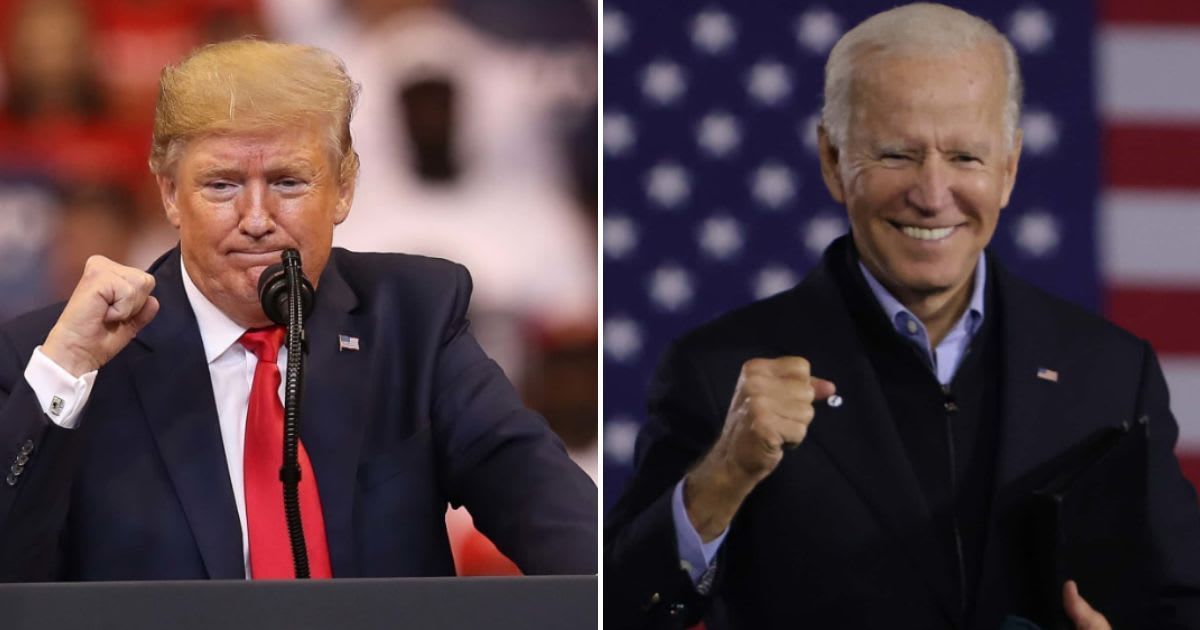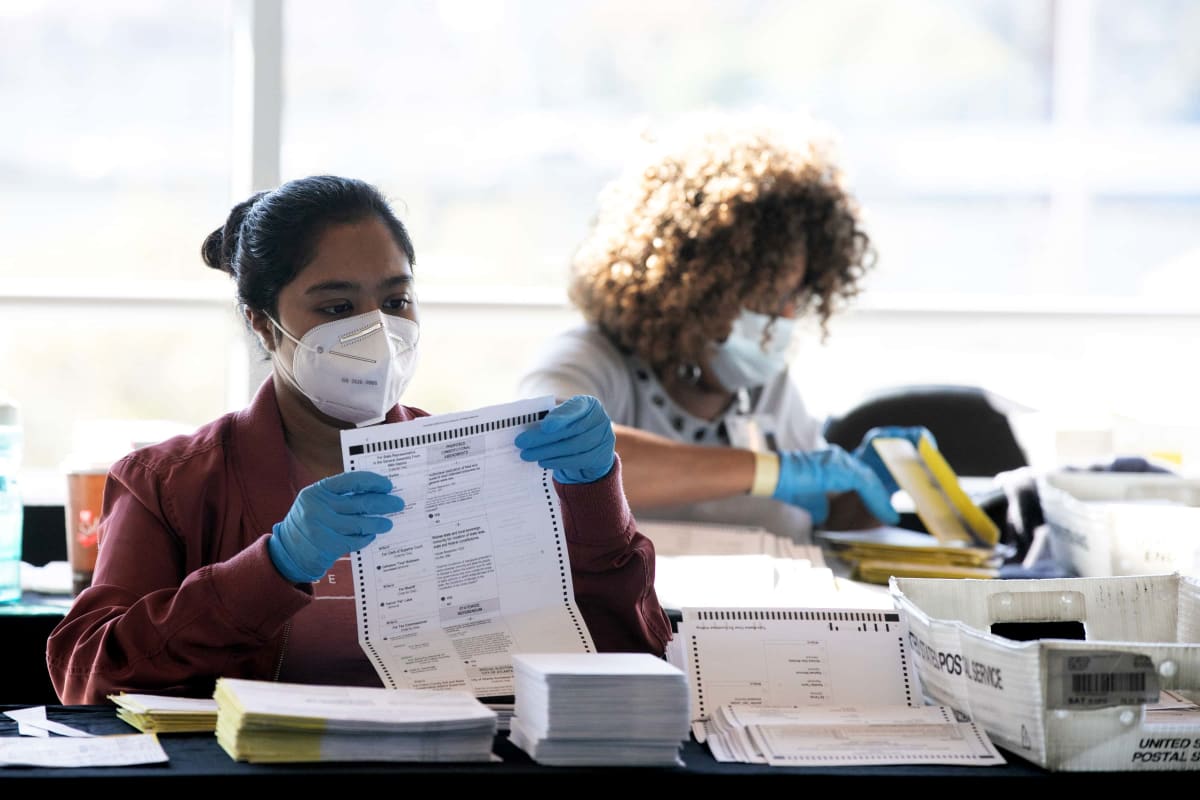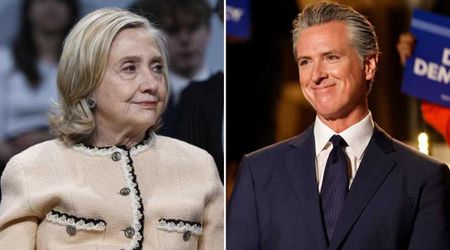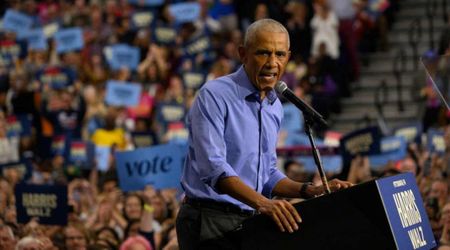US Elections 2024: Here's what to expect in Super Tuesday's crucial presidential nominating contests

All you need to know about the upcoming Super Tuesday presidential nominating contests

Super Tuesday, scheduled for March 5, is supposed to be the most significant day of voting outside of the November general election. The largest number of delegates will be at stake in the primary calendar, accounting for over one-third of the total delegates available in each party's nomination process. More than 70% of the delegates required to mathematically clinch either party’s nomination will also be up for grabs on this day. Millions of voters are expected to cast their ballots in presidential primaries and caucuses across 15 states and the island territory of American Samoa. The Republican frontrunner, Donald Trump, and his rival, President Joe Biden, both hope to amass a string of victories to move beyond the nomination stage to focus on their expected general election rematch. Meanwhile, for Nikki Haley, Super Tuesday is a crucial day as she faces a tough schedule of contests, mostly in states where party rules heavily favor the 77-year-old former president or in reliably Republican-voting states where she has struggled to win support. Although President Biden faces little opposition on the Democratic side, Super Tuesday could spell the end of the road for Haley since she is the last major candidate still challenging Trump.
1. What is Super Tuesday?

Super Tuesday, which usually falls in February or March, is a significant event in the United States presidential election cycle as it marks the day when a large number of states hold their presidential primaries and caucuses. These state-level races are instrumental in helping candidates from the two major political parties - the Democrats and the Republicans - gather the delegates they require to earn their party's presidential nomination. The delegates ultimately represent their respective states at a party convention, where they cast votes for the nominee based on the primary and caucus results. During this year's Super Tuesday races, 874 Republican delegates, constituting about 36 percent of all those available, will be up for grabs. A candidate needs to secure a minimum of 1,215 of the total 2,429 delegates to win the Republican nomination. For Democrats, 1,439 of the party's 3,979 total delegates will be at stake on March 5. 15 states are holding votes on Super Tuesday, including Alabama, Alaska, Arkansas, California, Colorado, Maine, Massachusetts, Minnesota, North Carolina, Oklahoma, Tennessee, Texas, Utah, Vermont, and Virginia. The territory of American Samoa will also be voting. It is noteworthy that the results of the Democratic caucuses in Iowa, which are being held via mail-in ballot, are also expected on March 5. As of Super Tuesday, there will be 132 days until the Republican National Convention in Milwaukee, 167 days until the Democratic National Convention in Chicago, and 245 days until the November general election.
2. Why does Super Tuesday matter?

Super Tuesday, which is considered the largest and most expansive primary day of the election season, accounts for more than one-third of the delegates, and it has been determinative of nominees for decades, making it a critical factor in the election process. The distribution of delegates on Super Tuesday can vary, as they may be awarded proportionally, by congressional district, or a combination of both. Alternatively, sometimes the winner takes all of the delegates. This method is often employed by Republicans to expedite the primary process and consolidate the base of the party around a single candidate, thereby avoiding any unpleasant convention fights. Conversely, Democrats tend to favor proportional delegate awards, which can extend the primary season. In the 2024 election cycle, most of the Republican states are primarily awarding delegates under the winner-takes-all method on Super Tuesday. Hence, if a candidate secures more than 50% of the votes, they will receive all the delegates. In a two-person race, such as the current situation, the winner will receive all the delegates. A sweep by one candidate in most of the states would create a substantial advantage for that frontrunner, making it challenging for other candidates to catch up. If Trump's current lead in national polls holds, it's likely that he will emerge as the winner on Tuesday night. For Haley, the former two-term governor of South Carolina, a weak performance on Super Tuesday could signal the end of her campaign for the 2024 Republican nomination. Polls indicate that she is trailing Trump in all the Republican contests on Super Tuesday. She has expressed her intent to remain in the race until at least Super Tuesday, despite losing to Trump by a significant margin in all the early contests so far. However, her plans beyond Super Tuesday remain unclear.
3. There will be more on the ballot than the presidential primary races during Super Tuesday

The upcoming Super Tuesday is set to feature a number of "down-ballot" races, including contests to fill seats in the Senate and House of Representatives, as well as in state legislatures. In addition, elections for lower-level posts such as prosecutors, judges, city councilors, and school board members are also scheduled. One of the most highly anticipated contests is slated to take place in California, where voters will select two candidates to go head-to-head in November for the vacant Senate seat previously held by Dianne Feinstein, who died in September 2023. Meanwhile, Texas is expected to see a significant number of Democratic candidates vying for the opportunity to challenge Republican Ted Cruz for his Senate seat. In Minnesota, Muslim community leaders are calling on voters to choose "uncommitted" on their Democratic primary ballots as a protest against Biden's support for Israel's retaliation on Hamas. A similar campaign in Michigan received over 101,000 votes on February 27. In North Carolina, both Democrats and Republicans are holding primaries to select their respective candidates for governor. Mark Robinson is currently leading and has received the endorsement of Trump, while Josh Stein, the state attorney general, is currently polling on top for the Democrats. Finally, in Alabama, a large number of candidates are competing to represent a new congressional district created after the SCOTUS approved a new electoral map. The 2nd District has shifted from a Republican stronghold to one where Democrats have a fighting chance, according to local media reports.
4. Is it the end of the road for Nikki Haley?

According to recent data, Trump has won each of the first six nominating contests by double digits, positioning himself as the inevitable nominee of the Republican Party. Meanwhile, his primary opponent, Haley, has yet to win in any state and trails Trump 122-24 in delegates. While she has performed well in Democratic-leaning areas and benefited from independents and Democrats participating in Republican primaries, she has yet to demonstrate significant appeal among Republican-leaning independent voters in Super Tuesday states. History suggests that Haley is unlikely to make a significant dent in the race. While many presidential hopefuls went all-in with their campaign spending during the first two early-voting states, Iowa and New Hampshire, and subsequently dropped out after failing to catch momentum, Haley and her supporting groups have been able to continue due to their significant financial resources. NPR's analysis of data provided by the ad-tracking firm AdImpact indicates that Haley and her supporting groups have spent nearly a third of the total $304 million spent on ads so far, with almost $100 million invested in her campaign. While most candidates have relied upon registered Republican voters to support their candidacy, Haley has benefited from open primaries, which allow independents and Democrats to participate. However, Haley's strong financial position and appeal among independents and Democrats may not be enough to overcome Trump's significant lead. If Haley is unable to win a majority of the 15 states voting on Super Tuesday, this could lead to a substantial deficit in the hundreds of delegates, due to how delegates will be awarded. Additionally, if initial vote results confirm that Trump is ahead by an overwhelming margin, the Associated Press may declare him the winner.
5. When will the Super Tuesday results be announced?

Upon the closing of ballots in each state and territory, the results of the presidential and state primaries and caucuses will begin to trickle in, typically commencing around 7 pm local time or later. The Associated Press will declare winners on Super Tuesday only when it has been determined that the trailing candidates are unable to close the gap. In the event a race has not been called, the outlet will continue coverage of any newsworthy developments, such as candidate concessions or declarations of victory.










